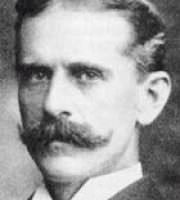by Reginald Gibbons
A last formality is
running late, as a life can't,
this hot day. The final
ethereal glow of
the sun seems to come up from
underfoot in this parkland
of polysyllabic death.
These deep graves, two this time,
neatly cut into the earth,
await the arrivals,
and two adjacent heaps of
damp fertile glebe are half
blanketed by reticent
dark tarpaulins. After
the full moon's first moments of
horizon-magnified
fact and risen largesse, it
has contracted as our
heaven has passed it by and now
it floats above the crowns
of the inky trees and
well beyond bare roofs. It has
always been an entity
born dead—not a phantom, as
must be this son, a muddy
part of whom soared from cratered
waste lands far away before
landing here, and also
this veteran father,
whose heart staggered into
an ER and failed after
he heard what circumstance
had done to his one boy.
No horses—hearses, the first
two cars. A corps of six men—
they bear the heavy coffined
corpse of the father toward his
very small opening in
the planet; and six more
envoys of duty, with
much-practiced attentiveness,
slow-step the light son, an
imperfect cadaver with
handles, to his own last place.
White gloves lift up the draped
famed cloth, super-striped and
starry, from the younger
casket, fold it just so—
hands with hands over hands
in ritual honor,
a ceremony neither
of mystical creed nor
of doubter's midnights—then
they advance it to the one
who remains. She's looking
away from her burials,
down at the blades of moon grass.
She feels no great gut blows
from startled convulsive
big drums that shake the spirits
of mourners, nor any
whirring of equally
perilous small drums that
might reduce the silence.
The son is submitted as
lifeless organism to
dirt; the father’s remains
descend into his pit
alongside, likewise on
tightly held ropes men slowly
let slip. (In foremost ranks of
a final unbecoming
these two fell alike.) The
ropes snake back up into
what's left of natural light—
remainder of the ancient
calculus of day and night.
From a boom box ten paces
away, the familiar
bugled notes say that the
journey of these remains
is done. Even if no grief
shadows the bugler, bugles
do sound it, word it—that
unacceptable sentence
of slow notes.
Distant, on
overtime, respectful, yet
much too near, a stranger
waits to start up a backhoe.
On such occasions, after
courage of soldiers or
folly of command or cold
wrong purposes among
patriarchs, lords, kings, and freed
madness in red valleys,
mountains, cities, villages,
in schools, shrines, sheds, beds, mud-brick
hearts, we have offered up our
mortally wounded, un-
comprehending remembrance.
We look down or away
and notice the impassive
grass under our bloody weight.





